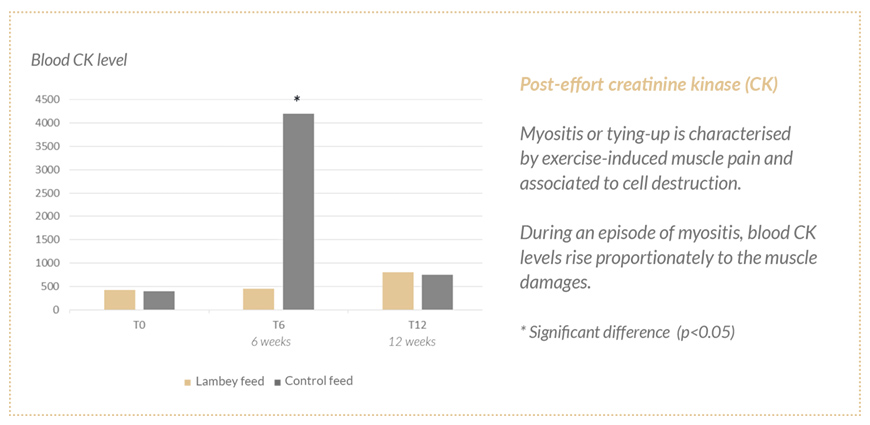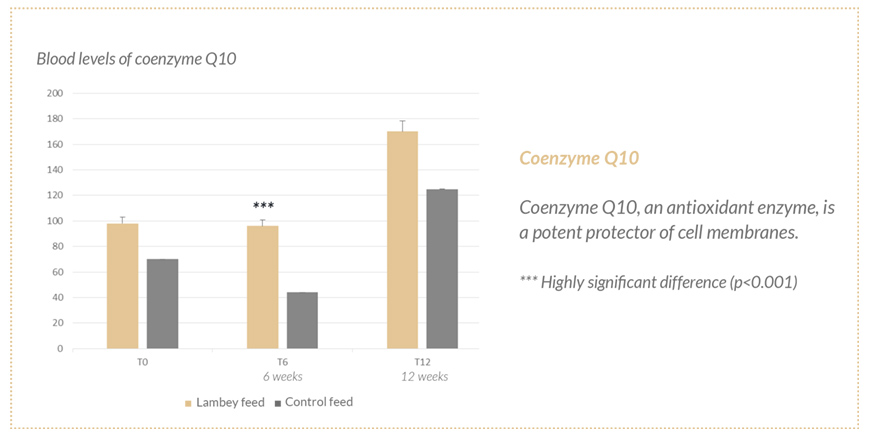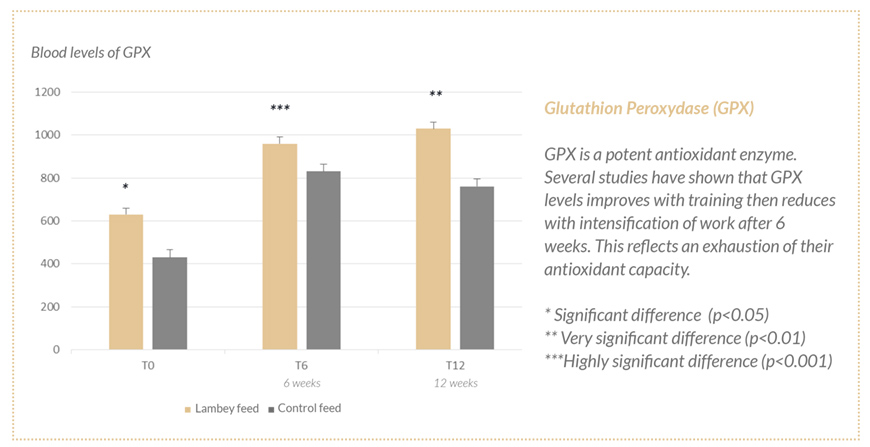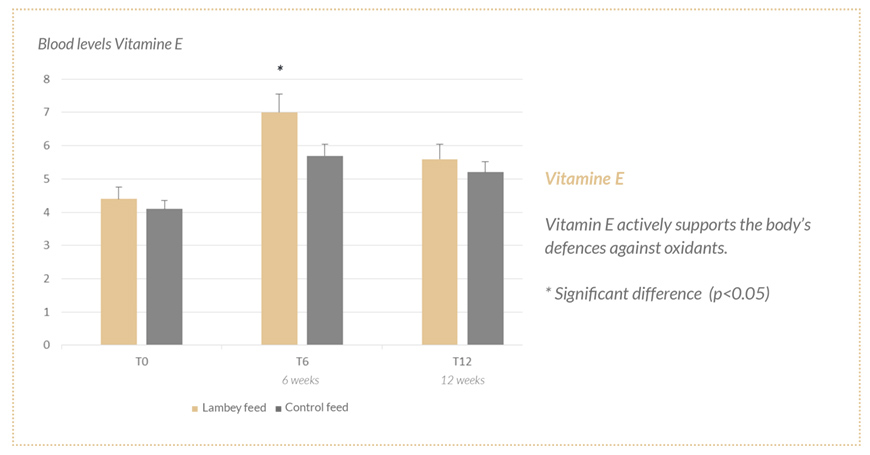No products
Welcome to the Lambey website
Select your country
Welcome to the Lambey website
Select your country
Blog Categories
Latest Posts
Oxidative stress is defined as an imbalance with too many oxidants and not enough defensive antioxidants. Exercise-induced oxidative stress in horses leads to muscle fatigue and a drop in performance.

Oxidative stress is defined as an imbalance with too many oxidants and not enough defensive antioxidants. Exercise-induced oxidative stress in horses leads to muscle fatigue and a drop in performance.
A scientific study measured the effects of a Lambey feed enriched in Protek Health® complex, compared to a control feed, about the antioxidant status in horses during strenuous work..
We selected steeple-chase horses during race season and divided them into two groups:
• one group fed with a control feed from another brand ;
• one group fed with a Lambey feed enriched in Protek Health® complex.
3 assessment and sampling phases



At 6 weeks, the horses fed on the Lambey feed enriched in Protek Health® complex suffered fewer episodes of myositis, demonstrated by much lower CK levels than the horses on the control feed
At 12 weeks, the effects seen at 6 weeks were no longer measurable because the horses on the control feed suffered major muscle damages and had to be withdrawn from competition and the study.

Blood levels of coenzyme Q10 is higher in the horses fed on the Lambey feed enriched in Protek Health® complex.

Horses on the Lambey feed enriched in Protek Health® complex had significantly higher levels of the protective GPX enzyme at all three time points.
The GPX level doesn’t fall between 6 and 12 weeks, contrary to what is usually seen in horses undergoing intense training.

Blood levels in vitamin E are higher in the horses fed on the Lambey feed enriched with Protek Health® complex.
The results of this study were selected by a panel of international experts to be presented at the British Equine Veterinary Association (BEVA) Conference in Birmingham:
Effect of Two Diets on Antioxidant Status in Racing Steeplechasers During Intensive Training
1. Van Erck E1,*, Palmers K.2, Lambey J-L.3 and Benoit S.3
Equine Sports Medicine Practice, 83 avenue Beau Sejour, 1410 Waterloo, Belgium,
Dierenkliniek De Morette, Edingsesteenweg 237, 1730 Asse, Belgium;
SA Lambey, Moulin des prés, 71 270 Torpes, France.
Aims
High-intensity training, racing and inappropriate antioxidant supply generates high levels of deleterious oxidative stress. This
study aimed at comparing the effect of 2 commercial feeds on oxidative stress levels in steeplechasers, over a 3-month period.
Methods
A random double-blind study was undertaken to compare the effect of 2 diets in 40 racehorses. The first group received a regular
pelleted commercial diet (R) and the second group received a low-starch high-fibre diet (L). The horses were examined after a 6-week
habituation period (T0) and after 6 (T6) and 12 weeks of reinforced training (T12). Horses were raced regularly. At each step, horses
were weighed; body and clinical scores were attributed. Several blood markers were studied including vitamin A (Vit A), vitamin E
(Vit E), beta-carotene, superoxide dismutase (SOD), glutathione peroxidase (GPx), Coenzyme Q10 (CoQ10), copper (Cu), zinc (Zn),
selenium (Se) and pre- and post effort creatine kinase (CK) activity. Data were analysed using an ANOVA for repeated measurements
and a t test.
Results
In the L-group, GPx levels were significantly higher than in the R-group at all times and a progressive and constant increase in GPx
was observed from T0 to T12. Vit E levels and CoQ10 increased at T6 in both groups but levels were significantly higher in group-L.
Selenium values were significantly higher at T0 in the L-group vs. R-group and remained stable in time in both groups. All other
markers were not significantly different between groups and did not change with time. The CK levels did not differ between groups,
however 2 horses from group-R displayed severe episodes of rhabdomyolysis.
Conclusions and practical significance
The choice of an appropriate diet can effectively increase antioxidant protection and prevent training-induced oxidative stress
even in intensively trained racehorses during racing season.
Acknowledgements
The authors thank Mr E. Clayeux for his collaboration.
Ethical animal researchThe trainer of all horses gave informed consent for this study.
Sources of funding: Lambey SA, France.
Competing interests: J-L. Lambey is owner of Lambey SA and S. Benoit is a consultant for this feed company